Happy New Year everyone! Hoping 2019 is your best year ever!
A new year brings fresh opportunities and possibilities for you and your career. Make this the year that you take the reins of your destiny and decide what direction it will go in. In this first post of the series, I’ll demonstrate the importance of managing your own career.
There are advantages to taking control of your future direction.
In the past, employees were expected to perform and deliver results for the organization. This determined your next promotion (up or out) in the company. It was based on the results produced but also on key partnerships and strategic alignments (no one ever got promoted based on results alone!).
We are in a new era where employees can decide their own future career tracks while delivering results for both the company and their career. The advantage of this is that it allows you to have the flexibility to address what you want to do in the future. Do you want a promotion? Would you rather try learning new things, regardless of the title? Are you open to changing careers completely? Taking control of your career promotes employee independence that makes you flexible and adaptable to any changes in the organization. You develop an independent mindset.
When it came to my own corporate career, I’m afraid I was guilty of letting others make decisions for me. I was fortunate to have two amazing sponsors at different points in my career. I didn’t plan these two senior leaders as sponsors; they sort of happened as I went along and continued to deliver in my role.
Yet, as I look back, they appeared because I was driving results and that helped to open doors to increased levels in the organization. Which was great, but….I basically gave control of my career, promotions, assignments, and roles, to others who I thought had my best interests at heart.
Ah, but what happens when one sponsor retires early (forced out) and another sadly passes away at a very young age? This was the exact situation I found myself in. While I mourned the loss of my sponsors, I realized that I had not taken the time to structure and strategize my career in the way that I wanted and needed to.
But it’s never too late. It’s always a good time to take stock and take control of your career.
Wouldn’t this New Year be a great time to do that?
I like to think of taking control of your career as becoming the head of a new startup company called “My Amazing Career, Inc.” (or any other creative name). The analogy is one of equating your career development to a startup company of which you are the Chief Executive Officer (as well as COO, CMO, CRO…OK, so let’s just say you are the Chief). The Chief is responsible for defining the path of career self-advancement and ownership.
You continue to focus on driving results for your company in your role, but now, you also think about meeting and achieving goals for your own personal career future. It’s a mind shift that you need to make to view your accomplishments to the benefit of your role and career.
There are many facets to consider in this startup effort…please watch subsequent posts for inspiration.
For now, start thinking about what you would like to accomplish in your career this year, short term, and longer-term view. In the next few weeks, I plan to explore all of these facets as we co-create your own Career Company and begin to strategize and plan for your next successful moves.
ACTION CHALLENGE
Happy New Year! Start this new series by taking some time to think about what you really want to accomplish most in your career this year. Write down some career goals (no more than 5 to 7 goals) and continue to follow this series!
Lupe S. Wood, MS, PCC, is a certified Career/Executive Coach. She coaches individuals and leaders to career fulfillment, transition, and advancement. She also consults for results with businesses and solopreneurs. Her background includes 12 years in senior leadership for a Fortune 100 corporation and 7 years as a coach, with a Master’s degree in Organizational Effectiveness and Executive Coaching.
For more information, please visit my website at www.upcoached.com







